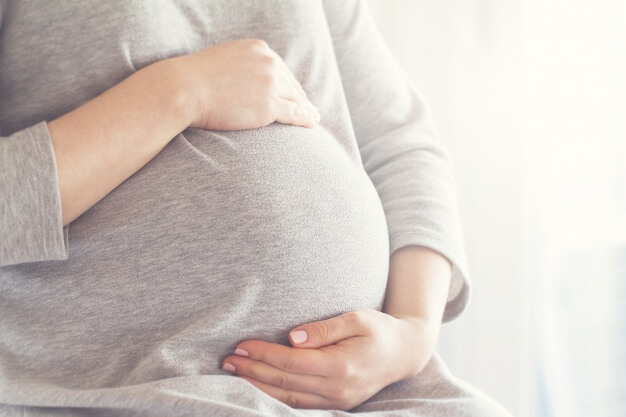In fact, all pregnancies bring a certain risk to them, some pregnancies become the high risk pregnancies when it comes to high risk factors. A high risk pregnancy is a pregnancy condition where it puts the baby and also the mother, or both at higher-than-normal risk for complications during, after the pregnancy and birth. Some factors such as young or old maternal age, weight problem either overweight or underweight, have faced miscarriage in previous pregnancies, health condition, such as high blood pressure, diabetes, or HIV can be the cause of a high risk pregnancy.
From those factors mentioned before, one of the most common risk factors for a high risk pregnancy is the maternal age. Women under 17 or over 35 when they are pregnant, they are at greater risk of complications than those between their late teens and early 30s. While after age 40, risk of miscarriage and genetic defects further increases.
There are some conditions that may cause a high risk pregnancy:
- Preeclampsia and Eclampsia – Preeclampsia is a during pregnancy syndrome that includes high blood pressure, urinary protein, and changes in blood levels of liver enzymes. It is affecting the mother’s liver, kidneys, and brain. Many women will have healthy babies if they get the right treatment. If left untreated, it can lead to long-term health problems and the condition can be fatal for the mother and/or the baby. Eclampsia is a rigorous form of preeclampsia that can cause seizures and coma in the mother.
- Gestational Diabetes Mellitus (or gestational diabetes) is a type of diabetes that only attacking pregnant women. If a woman never gets it before but she gets diabetes when she is pregnant, then she has gestational diabetes. By getting the right treatment, many women with gestational diabetes can have healthy pregnancies and healthy babies.
- HIV/AIDS kills or damages the antibody system, with time it is destroying the body’s ability to fight infections and certain cancers. Babies can inherit HIV from their mother during pregnancy, while giving birth, or through breastfeeding.

A woman with a high risk pregnancy need to take a better care of herself than the average pregnant woman. Monitoring such as frequent visits with the primary caregiver, tests to monitor the medical problem, blood tests to check the levels of medication, amniocentesis, serial ultrasound examination, and fetal monitoring are all important. It is important for a pregnant woman who has a medical problem to do a pre-pregnancy visit with a healthcare provider. For some diseases (such as lupus), pregnancy means increased risk of health problems for mother and baby.
Sometimes, the medication that a pregnant woman takes can cause problems for the baby. Make sure to choose a safer medication that is available for use in pregnancy. While in some cases, because when deciding whether or not to become pregnant, there is no other medication, a woman must take the risks to the baby. Visit to contact a health care provider ASAP she is pregnant is better for women who has not had a pre-pregnancy. Instead of waiting until eight to 10 weeks of pregnancy, the provider will schedule the first prenatal visit within a day or two. This is because the provider wants to make sure that the medication you’ll get will not cause any harm to your pregnancy.
References:
- Managing a High-Risk Pregnancy. webmd.com/baby/managing-a-high-risk-pregnancy
- High-risk pregnancy. medical-dictionary.thefreedictionary.com/High-risk+pregnancy
- What is a high risk pregnancy?. pregnancy.about.com/od/conditionscomplications/f/highriskpregnancy.htm
- High-Risk Pregnancy. nichd.nih.gov/health/topics/high_risk_pregnancy.cfm
- Images: pnmag.com
Article publié pour la première fois le 26/08/2015
